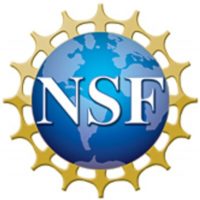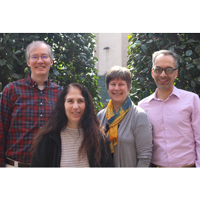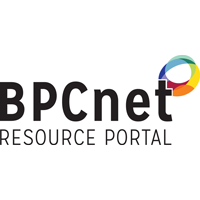Re-envisioning Computing in Undergraduate Education

By Jan Cuny, NSF CISE Program Director for Computing Education, Erwin Gianchandani, Deputy Assistant Director of NSF for CISE, and Jim Kurose, Assistant Director of NSF for CISE
Colleges and universities across the country are experiencing a significant influx of students in their undergraduate computer science (CS) courses. Many of these students are seeking the “traditional,” CS-centric undergraduate degrees that have evolved over decades, along with changes in our field. But many other students are quite different from the students whom we have found in our undergraduate majors. While they are interested in computing, they are more interested in creatively applying sophisticated computational skills and methods to a range of disciplines from biology to linguistics to art. They understand that CS knowledge is critical to helping them succeed in nearly any job, that “every field is becoming an information field.”[1]
This new generation of students pursuing CS courses is generally not well-served by our traditional CS course sequences. Indeed, in response to the interests of this new generation of students, some CS departments and colleges/universities are beginning to augment their existing computing programs, creating more flexible, interdisciplinary pathways. In “CS+X” or “X+CS” programs, for example, students may take courses in computer science (the “CS”) tailored to their desired discipline or disciplines (the “X”). In other cases, colleges/universities are adding new interdisciplinary programs in areas such as data science or machine learning. Still other colleges/universities are repositioning CS into Schools of Computer or Information Science, often broadening their educational offerings at the same time,
This month, the National Science Foundation launched a new program—Improving Undergraduate STEM Education: Computing in Undergraduate Education (IUSE: CUE)—to support institutions of higher education as they re-envision the role of computing in undergraduate education, restructuring curricula, programs, and pathways in recognition of the increasingly ubiquitous role that data and computation play across many other disciplinary and interdisciplinary pursuits.
Effecting change across the higher education landscape is not easy. Too often efforts are conducted in isolation, at single institutions. As a result, even successful transformations rarely achieve widespread adoption, in some cases because faculty and administrators at other institutions are unaware of them, and in other cases because the transformations themselves are seen as being dependent upon specific institutional characteristics not widely shared by other institutions. IUSE: CUE aims to avoid these pitfalls by supporting teams of like colleges and universities working together, and by creating a community among these teams via national convenings and workshops.
In its inaugural year this spring, the IUSE: CUE program invites teams of 3-5 institutions of higher education, structured as Networked Improvement Communities (NICs)[2], to submit proposals. Team partners can be colleges/universities, selected along a range of characteristics: institutions of a similar type [research-primary, community colleges, Historically Black Colleges and Universities (HBCUs), Hispanic-Serving Institutions (HSIs), etc.], located in the same geographical region, operating within a single state system, having similar interdisciplinary research efforts, and so on. Within each institution, NSF encourages the inclusion of faculty from different disciplines and departments, as well as administrators, researchers, and evaluators. With this initial proposed funding[3], teams should begin the process of re-envisioning computing in undergraduate education at their institutions.
IUSE: CUE aims to support the initial planning stages of a re-envisioning or re-positioning of CS in undergraduate education. This should not be limited to modifications of a few courses but should impact the role that computing plays across the entire institution, remaking its educational programs and degree pathways. IUSE: CUE aims to support the initial planning for such change, funding activities such as convening partners, engaging additional partners, organizing the structure of their interactions, collecting initial common data, piloting new curricula, or developing professional development activities for faculty and their graduate students. NSF anticipates building upon these initial activities through additional investments in future years.
Networked Improvement Communities (NICs)
Proposing teams responding to the NSF IUSE: CUE program should be structured, at least informally, as a NIC. That is, partners should share a common goal, have an agreed-upon common set of metrics around achieving that goal, and have well-established lines of communication for frequently updating and supporting one another on their activities and progress. Similar in many ways to any professional community in which individuals share interests and ideas, NICs are distinguished in that the partners seek to collectively accomplish a clearly-defined, measurable outcome. The effectiveness of this model lies in the NIC mantra to “learn fast, fail fast, and improve quickly,” positioning partnering organizations to continuously evaluate or reshape solutions through rapid cycles of planning, testing, evaluating, and decision making, or Plan, Do, Study, Act.
The new students showing up in CS courses are not only more diverse in their interests, but they are also more diverse in their demographics. Thus, the repositioning of CS at the undergraduate level might well provide an opportunity to address a longstanding problem in computing—the underrepresentation of women, people of color, and persons with disabilities. IUSE: CUE projects must include diversity and inclusion as a key part of their work, aiming to recruit, welcome, and retain a broad group of students.
Finally, each IUSE: CUE project may also include a component on ethics. Increasingly, the decisions that we make as citizens, consumers, workers, and community members are shaped by digital technologies. While the benefits of these innovations are obvious, there are also many potential risks like the erosion of individual privacy and biases in algorithms that inform decision making. NSF is therefore encouraging proposers to use their efforts to re-envision the role of computing in undergraduate education to also better incorporate the study of ethics into their curricula, in order to train the next generation of computer scientists, data scientists, and engineers to think critically about the responsible development of such technologies. NSF’s effort aligns with the Responsible Computer Science Challenge being led by the Omidyar Network, Mozilla, Schmidt Futures and Craig Newmark Philanthropies.
We hope you’ll join us by developing thoughtful proposals responsive to IUSE: CUE and begin the process of tackling the challenges—and opportunities—presented by the growth in both size and in breadth of interest in undergraduate CS courses and programs over the last several years. We are confident this program will pave the way toward the next generation of professionals and scholars grounded in the data and computational competencies demanded by all disciplines and sectors in the 21st-century digital economy.
FOR MORE INFORMATION…
To learn more about IUSE: CUE, join NSF for a webinar on Thursday, March 14, 2019, at 2pm EDT. Details about the webinar are available here.And please also join us for a Twitter chat @NSF_CISE (https://twitter.com/NSF_CISE) on Friday, March 15, 2019, at 2pm.
[1] Ed Lazowska in “The exploding demand for computer science education and why America needs to keep up,” GeekWire, published June 6, 2014, https://www.geekwire.com/2014/analysis-examining-computer-science-education-explosion/.
[2] Resources on NICs can be found at https://www.nsf.gov/cgi-bin/goodbye?https://www.carnegiefoundation.org/resources/publications/.
[3] CISE anticipates additional rounds of support for NICs re-envisioning computing in undergraduate education, pending the availability of funding.



